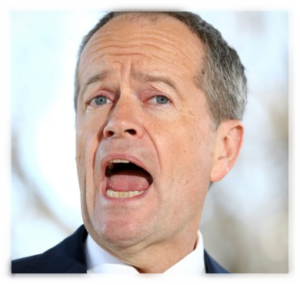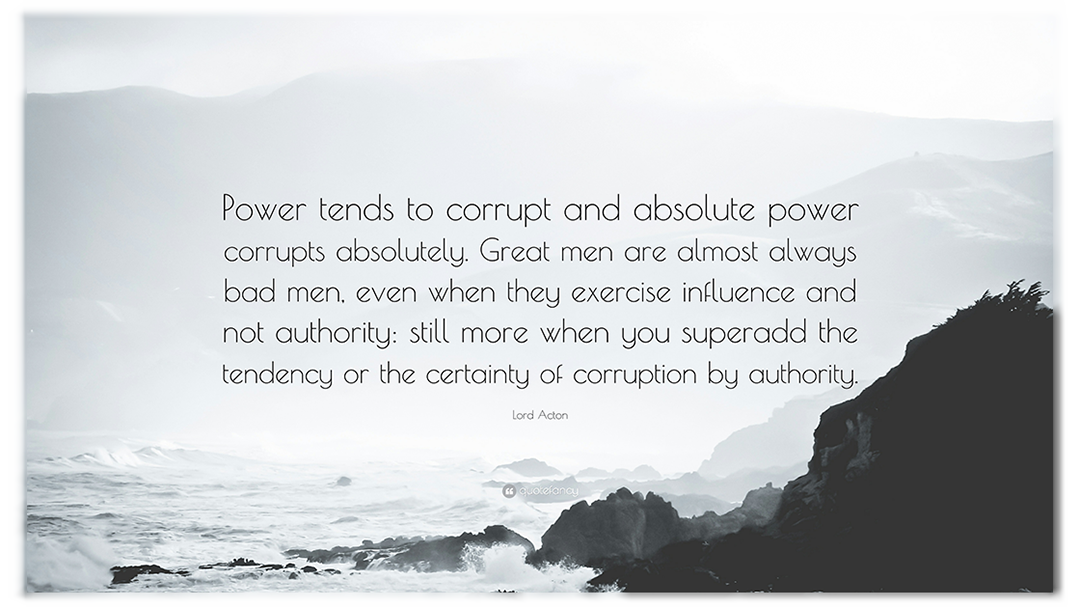… (if) there is no provision for a rotation, nor anything to prevent the perpetuity of office in the same hands for life; it will by a little well-timed bribery, probably be done… – Mercy Otis Warren, Constitutional Historian
 Bill Shorten’s suggestion of a fixed term of four years for Parliament is music to my ears. Met, of course, by the predictable chorus of immediate opposition to it by the usual suspects – politicians and political commentators (such as Paul Kelly in The Australian), choosing to focus on the obstacles rather than the opportunities of the proposal.
Bill Shorten’s suggestion of a fixed term of four years for Parliament is music to my ears. Met, of course, by the predictable chorus of immediate opposition to it by the usual suspects – politicians and political commentators (such as Paul Kelly in The Australian), choosing to focus on the obstacles rather than the opportunities of the proposal.
But it is just one of many changes required to restore faith in democracy. Limited tenure is another, equally important reform on the road to saving it; wresting people power back from the career politicians who have usurped it.
The history of tenure
The very first known democratic body, the Council of 500 in ancient Greece (”The Boule”) rotated its entire membership annually. Roman Consuls also served for one year only, being barred from re-election in the same constituency for the following ten years.
When the first President of the United States, George Washington, refused to be elected for a third term, he set a precedent that only war time leader Franklin D Roosevelt was “allowed” to ignore. It subsequently became law through the 22nd amendment in 1951. (So rest easy, even if he is reelected, there are a mere 7½ years left of Donald Trump’s reign…)
Although the principle of limited tenure was not in the original constitution, it was by many, including Thomas Jefferson, seen as a dangerous omission. In most proper democracies where the Head of State is the same as Head of Government two term tenure is the norm. The reasoning is obvious, if not always explicitly stated, “power corrupts, absolute power corrupts absolutely” (Lord Acton, British historian, politician and writer).
There are many good reasons to heed that warning and apply the principle of limited tenure to all elected representatives.
The privilege of being elected
The role of elected representatives, at any level (federal, state or council) is to serve the people. They are also meant to be of the people.
During the formative years of “modern” democracy, elected representatives were generally men of means. In the United Kingdom, payment for members of Parliament was first introduced in 1911, a long delayed legacy of the Chartist Movement of the 1830’s and 40’s.
Politics was, however, never meant to be a career, but an honour and a privilege. To many it still is, but overwhelmingly, modern politicians are men and women who have made electioneering their career, often entering politics from an early age, before having gained any “normal” work experience.
 This isn’t necessarily to say that the men of means of yesteryear were any more altruistic than present day politicians. It took William Wilberforce, the son of a wealthy merchant, almost 50 years to convince his parliamentary colleagues to abolish slavery, not so much because of any moral or ethical opposition, but because so many of his wealthy opponents benefited from the trade. Their vested interest took precedence.
This isn’t necessarily to say that the men of means of yesteryear were any more altruistic than present day politicians. It took William Wilberforce, the son of a wealthy merchant, almost 50 years to convince his parliamentary colleagues to abolish slavery, not so much because of any moral or ethical opposition, but because so many of his wealthy opponents benefited from the trade. Their vested interest took precedence.
The parliamentarians of old were strongly motivated by the self interest of their wealth, the elected representatives of today are first and foremost beholden to their party, secondly, to their donors, and finally to their constituents.
Or to put it another way, the people, are still not being served.
Career politicians
It is often said that we, the voters, get the political leaders we deserve. I disagree. We deserve much better. Above all we deserve representatives that are accountable to their electorates, not their party or their donors. Candidates who are clear about what they stand for and act accordingly.
There are, of course, many well meaning and very capable career politicians. But too many of them know only politics. We have an Education Minister – Simon Birmingham – who has never worked at a school or university in any capacity. Our Health Minister – Greg Hunt – has never run a hospital or been a doctor or a nurse, and our Treasurer – Scott Morrison – has never run a business of any kind.
The majority of our parliamentarians are career party politicians with limited experience outside of politics. There are also very capable independents, unaligned to any party. Tellingly, the independents are anecdotally much more likely to be individuals with considerable experience outside of politics.
Politics should not be a career, but a privilege sought by those who wish to represent the people for the common good.
Limited tenure
I see no reason why the tenure of elected representatives at all levels of government should not be limited to two terms, as is the norm for elected heads of government. The first term to prove your worth to those that voted for you, the second term (if reelected) to ensure accountability for descions made as well as a firm eye on the future, not the next election. It’s a difficult job, eight years (or max six as it is now) is enough.
Limited tenure will no doubt attract a very different kind of person, more independents, more candidates with experience and expertise in their areas of interest. It won’t preclude career politicians, of course, but it is quite likely that it will significantly diminish the opportunities for making a career out of politics. And that’s a good thing, representing your fellow citizens should be a calling.
Serving as an elected representative is an immense responsibility and a privilege. The motivation for those choosing to take it on should be the common interest of the electorate, not the vested interest of the candidate or his or her donors.
The long view
Four year fixed terms will no doubt help to give those elected more time to implement their election promises. Limiting tenure will serve to diminsh the career aspect of being an elected representative. It will also attract a different kind of politician, people passionate about their field of endeavour, wanting to impact on tomorrow.
A system where being an elected representative has a well defined end date is also more likely to attract people that may have worked for a long time in business, social services, education, health, etc., offering their in-depth experience and expertise for the common good via the democratic process. It may well also enable younger representatives to get involved unencumbered by career expectations or aspirations.
It would no doubt lead to a vastly more diverse representation from the ever expanding tapestry of cultures, opinions, values and backgrounds that form the backbone of this wonderful country. Who knows, it may even mean that conscience votes become the norm, not the exception!
Above all, and I recognise this is a leap into unknown territory, I profoundly believe it would lead to better decisions being made impacting our future. At no time in the history of humankind has this been more important.
Restoring faith in democracy
Fixed parliament terms of (at least) four years, combined with limiting tenure to two terms, are not by themselves enough to restore faith in democracy. Attracting more diverse and better quality candidates is a good start, but there are other areas of democratic reforms equally important:
- A fundamental review of political donations – banning them completely would be good, or as a minimum limiting the amount and to individuals only, as suggested by John Hewson and many others.
- Consider public funding of all election campaigns, removing fiscal advantages of a candidate to influence an election, as well as eliminating the risk (or rather, the certainty) of bias associated with using donated funds.
- Hold elected representatives to the absolute highest standards, including making them accountable to a code of ethics.
- Review the way elected representatives are compensated – pay them well and commensurate with the level of responsibility and liability while in parliament, but with benefits relevant to their job only, superannuation and pension rules as for the rest of us, removing the many perks that quite rightly is seen by the electorate as unfair, such as airline “Gold Cards”.
- Implement referendums as an integral part of political decision making for matters that have universal impact.
And that is just the beginning. Democracy has been taken from us, we want it back!
To be continued…

